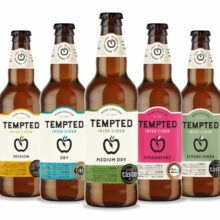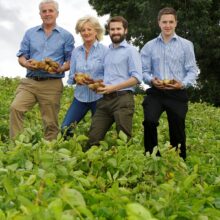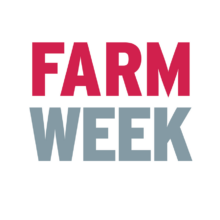We Must Safeguard Our Superb Food And Dedicated Farmers From Post-Brexit Imported Threats

Every job had its ups and downs. One of the perks of my role is that I have been lucky enough to have met a whole range of celebrity chefs, each of them a major talent in their own right. However, I have to confess that one person who hugely impresses me is chef Jamie Oliver (even if he did mistake me for the agriculture minister once).
I was lucky enough to see him interact with school children at a cookery contest and was struck by his honesty and respect when talking to all of the entrants. I have utter respect for the work he has undertaken on school meals and the sugar tax. Ministry of Food is the go-to book in our house and it is particularly heart-warming that he has dedicated it to Marguerite Patten, the wartime celebrity chef who created recipes to match the ration allocation.
Therefore, I was encouraged to see his forthright views on the need to ensure UK farmers are not adversely impacted by a post-Brexit influx of food, which may not measure up to the exacting standards in force here. Furthermore, I was delighted that he backed the NFU petition to protect our crucially important food standards in quality, animal welfare and sustainability.
I share his concerns and have expressed my support for this approach in previous columns in this newspaper. I believe too that our dedicated and talented farmers will play a vitally important role in the regeneration of national and local economies when the coronavirus threat wanes and associated lockdown is lifted in the months ahead.
We have clean and great tasting produce based on quality, wholesomeness and provenance. Our farmers have won widespread respect – and justifiably so, for their tremendous endeavours to feed the nation during this pandemic. Their superb ingredients underpin our world class food industry.
We must, therefore, ensure that food standards across the UK are safeguarded and that any food imports meet these high standards. We are fortunate in having in Edwin Poots, a successful farmer, as Agriculture Minister committed to the long-term growth of our most important industry, one with enormous potential.
There is a need to ensure the industry is supported, as we come out of this pandemic, to build on existing successes in Britain, our most important market. In addition to quality produce, the industry has strong green credentials for the developing trend in Britain towards nutritious and tasty local food that’s safe, clean and based on the highest animal welfare standards. Promoting the essential standards of our food and farmers should be a priority as we move forward post-virus to meet the looming challenges of what may be a Brexit without a trade deal such as chlorinated chicken and hormone injected beef, both from the US..
Strengthening and promoting the ‘green’ credentials and sustainability of our farming and food is becoming a priority because there’s evidence that consumers, influenced by the environmental debate, are becoming more aware of climate issues and are more interested than ever of how and where the food they buy and consume is produced. There are indications too that consumers are keener than ever to buy food and drink from trusted local producers.
There’s much to be done to raise the profile of and awareness about the characteristics of Northern Ireland food and drink in Britain. And our farmers too must be prepared to adapt to reinforce the essential characteristics of local food and especially their commitment to the environment.
Among the many changes driven by the pandemic is a growing concern among consumers of health issues and the need to focus on food perceived to provide tangible health benefits. This may result in greater opportunities for organic produce and functional foods.
The pandemic, furthermore, has shone a spotlight on sustainability and environmental standards. So, whether a Jamie fan or not, I urge you to consider signing the NFU petition so the food we eat continues to be safe, traceable and produced to high welfare and environmental standards.








